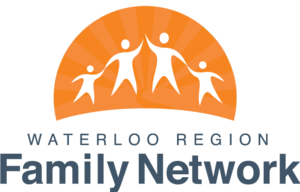
We collect basic website visitor information on this website and store it in cookies. We also utilize Google Analytics to track page view information to assist us in improving our website.
It is common to hear people use the terms “high functioning” or “low functioning” to describe exceptional individuals. Individuals with exceptionalities may even use this language to describe themselves. For the remainder of this article, I will refer to this linguistic approach as ‘functioning language’.
Over the years, I’ve started to question the functioning language approach. I would like to explore why and how this language is used, and the value judgements it may imply. As you read, I invite you to reflect on these concepts too. I will share my own perspective and experiences, as a neurodivergent person, along with some linguistic alternatives that I’ve started moving toward in my own conversations.

I have wondered if the functioning language trend may have been exacerbated by changes in the latest Diagnostic Statistical Manual (DSM-5). The fifth edition removed some neurodevelopmental diagnostic terms that people were accustomed to, terms that had come to be associated with certain (presumed) levels of support needs. Without these terms, people look to pair a more general diagnostic term with a descriptor.
In my estimation, a speaker using functioning language is often looking to concisely communicate an individual's support needs. Or if someone is inquiring about an exceptional person, they want to know what kinds of support that person might require. All of this is typically well-intentioned. More information or a better understanding is usually the goal, because there is so much individual variation within neurodevelopmental conditions.
And if you’ve used this terminology before, don’t worry, I’ve used it too earlier on in my journey. So, no judgement here. The aim of this article is by no means to evoke shame or guilt, but rather to give you something to think about.
“High functioning” is often used as a positive qualifier. Something like, “Jack has autism, but he’s very high functioning” as if to imply “but don’t worry, it’s not that bad.” Or a neurodivergent individual may get a reaction something like, “You can’t possibly have ADHD? Well, I guess if you do, then you must be so high functioning” as if that is a compliment.
These kinds of statements make several assumptions: (1) a certain diagnosis is inherently negative, (2) the extent of someone’s challenges are minimized, and (3) there is a presumed level of ability and/or value.
I question more and more if these kinds of statements are appropriate. I hear “low functioning” used much less often, but it is used. And we can extrapolate that if society holds high functioning in a more positive esteem, then low functioning has a negative connotation; sadly, it is seen as ‘less than’. And is any of this really fair? In my opinion, no, it isn’t.
I think it’s important to step away from categorizing others, from making presumptions about what another individual can and can’t do. I also wouldn’t want to box someone in, because really there is some variability in what one is able to do in any given situation or on any given day. Don’t we all have days when we ‘function’ better, and days where we ‘function’ more poorly?

When people tell me I’m “high functioning,” it feels like they expect me to perform at a certain level. All. The. Time. And that’s just not possible. I use the word ‘perform’ intentionally because in certain situations I am actively working to mask my neurodivergent symptoms. It also feels like my very real challenges are being glossed over. When I took my five-year-old to a birthday party at an extremely busy play place, between the sensory overload and parental small talk, I can assure you that I felt anything but high functioning. The struggle was intense, whether other people could see it or not.
So then, you may be wondering, what exactly am I supposed to say? Well, let me offer you some alternatives. I’ve used one option a few times in this article already: the extend of support needs. Since I suspect one of the driving forces behind functioning language is a desire to communicate how much support an individual needs, then let's just talk about support needs, shall we? A “functioning” statement does not need to be part of the equation.
I think one can also look at things in terms of a degree of independence. I live a highly independent life, and in some ways my independence can mask my symptoms because I can choose to modify my day to meet my needs. Some of my neurodivergent peers have less independence, needing more support in their daily lives, and that is okay too. Neither situation is better nor worse than the other, they just are what they are, as we each try to live our best life. We all have intrinsic value. We all have something to contribute.
And I try to be mindful that language isn’t static, so my opinion in a few years may shift. For now though, I will be going with a ‘support needs’ and ‘independence’ approach to the language I use. I understand everyone has different preferences and perspectives, and you may very well come to a different conclusion about functioning language than I have. All I ask is that you give it some thought.
